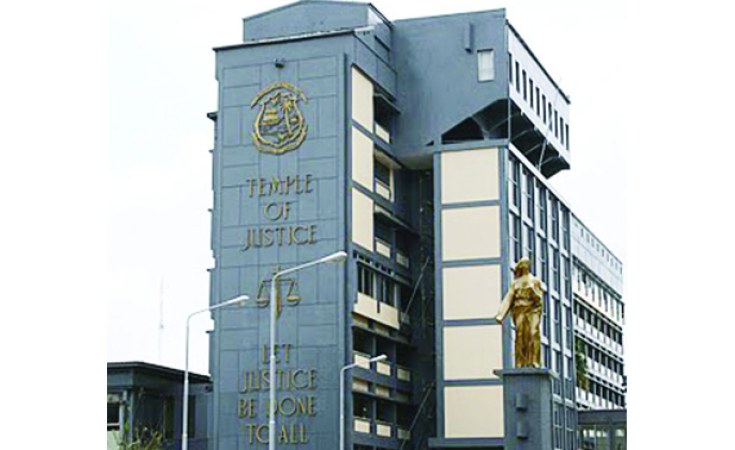Justice Sie-A-Nyene Gyapay Yuoh is the third female Chief Justice in Liberia's 175 years of existence. The founding member of the Association of Female Lawyers of Liberia (AFELL) and former Associate Justice was one of two female judges in the current five-member Supreme Court.
The Liberian senate has confirmed Justice Sie-A-Nyene Gyapay Yuoh as the country's new Chief Justice. She will be the first woman to become CJ since 2003 but the third female CJ to head the Supreme Court since Liberia's independence in 1847. The two previous female CJs were Frances Johnson Allison and Gloria Musu Scott.
Justice Yuoh succeeds Francis Korkpor, who retires in September, a year before the next presidential and general elections. She takes over a court mired in corruption (as with many other Sub-Saharan judicial systems) with a Corruption Perceptions Index (CPI) score of 29/100 (a country's perceived level of public sector corruption where 0 is extremely corrupt and 100 is impeccably lawful) and ranking at 136 out of 180 countries and territories in Transparency International's 2021 report. Liberia has dropped 12 points since 2012, making it one of the biggest decliners in sub-Saharan Africa.
Brief profile
CJ Yuoh was born in Montserrado County and obtained a high school education and a diploma from St. Teresa's Convent, in 1974 before going on to graduate from Cuttington University College (CUC) in 1978 with a Bachelor of Arts (BA) degree in Political Science. She then enrolled at the Louis Arthur Grimes School of Law, where she obtained a Bachelor of Laws (LLB) degree and subsequently gained admission into the Liberia National Bar Association as an Attorney-At-Law.
According to Liberia's government portal, she started her public and professional service within the Executive Branch, first at the Ministry of Justice as an Assistant Minister for Legal Affairs from 1983 to 1985, the Ministry of Foreign Affairs as the Coordinator, African Affairs, 1988 to 1990, the Central Bank of Liberia (CBL) as Corporate Secretary/Assistant Legal Counsel/Secretary, she was also admitted as Counsellor-At-Law of the Supreme Court Bar in 1988, to the Board of Governors of the Central Bank of Liberia (CBL) from 2000 to 2003 and lastly at the Law Reform Commission, where she served as Acting Executive Director and Commissioner respectively from July 2011 to April 2013. In 2013, CJ Yuoh was nominated, appointed, and subsequently commissioned as an Associate Justice of the Supreme Court of Liberia.
She also provided professional legal services to the private sector as an Associate and Legal Counsel at the David A.B. Jallah Law Firm from 1994 to 2000.
In her other professional affiliations, the incoming CJ served as Vice President of the Liberia National Bar Association (LNBA) from 1994 to 1998, was a founding member of the Association of Female Lawyers of Liberia (AFELL) and served as its 1st Vice President from 1997 to 1998, Chairperson of the Judiciary Committee of the Liberia National Bar Association (LNBA) from 2012 to 2013 and President of the Maryland County Local Bar Association in 2013.
Judicial outlook
During the vetting process, the career advocate pledged to push for swift, decisive, accurate decisions and to improve access to and within the court system. She also highlighted her plans for a credible and robust judiciary by tackling three main issues.
"First of all, the general public does not understand the workings of the judiciary branch of government, and this is not unique to Liberia. And because of this lack of understanding and knowledge of this branch of government, there is a high misconception of the judiciary, mainly the courts," she told the Senate Committee on Judiciary.
"Secondly, the procedural laws have oftentimes adversely affected the expeditious disposition of cases in our courts. And thirdly, noncompliance by the executive government with the Judicial Financial Autonomy Act, which has oftentimes undermined the workings of the judiciary."
She then aptly summed up her judicial philosophy by saying, "People often say that the law is reasoning. But I always say the law is the law," explaining that the issue of reasoning when applied to the law could be dependent on one's current disposition, situation, or position. "But at the end of the day, the law must prevail in its pure context," Justice Yuoh intoned.
Follow This Is Africa on Twitter and Facebook to join the conversation.


